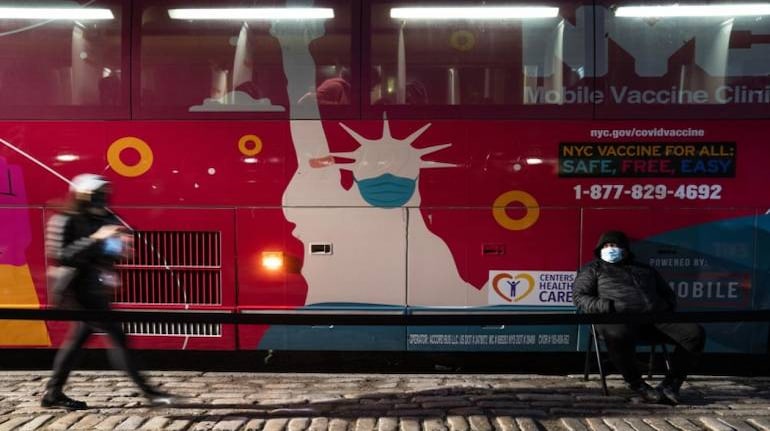



Global markets sunk on December 20, and Wall Street was poised for a drop, as investors took in the latest grim forecasts about the sudden surge in the omicron variant and a critical setback in President Joe Biden’s efforts to pass a massive domestic policy bill.
The S&P 500 was set to fall more than 1% when the US markets open, futures showed. In Europe, markets were down 1% to 2%, with the Stoxx Europe 600 1.5% lower. Asian indexes closed lower.
“The rampant nature of omicron and its potential impact in sharply slowing global growth is continuing to unnerve investors,” Susannah Streeter, an analyst at Hargreaves Lansdown, wrote in a note to clients. “Uncertainty about the year ahead is rippling through the markets.”
Over the weekend, more European countries announced restrictions to control the spread of the coronavirus. The Netherlands on Saturday became the first European country to announce a lockdown in response to the variant. Britain’s health secretary said Sunday that he could not rule out imposing new restrictions before Christmas. The minister, Sajid Javid, did not deny speculation that the government was considering a two-week “circuit breaker” that could mean curbs on pubs and restaurants.
Germany’s central bank, the Bundesbank, said it would scale back its predictions of economic growth because of recent pandemic restrictions. The bank forecast the German economy would expand by 2.5% in the current quarter, down from the 3.7% increase predicted in June.
Airline and travel stocks fell sharply in early European trading. But the biggest decliner in Britain’s FTSE 100 was Informa, which organizes large in-person events. It fell 4.5%, after shedding as much as 6.9% earlier.
In the United States, the future of Biden’s $2.2 trillion domestic policy bill was put in doubt after Sen. Joe Manchin, D-W.Va., said he would vote against it because he feared it would inflame inflation.
The impact began to weigh on prospects for the economy, adding to the negative sentiment in markets. Goldman Sachs said in a research note that it would scale back its projected growth for the U.S. economy next year.
Oil prices also fell Monday. Futures of West Texas Intermediate, the U.S. benchmark, dropped more than 3% to $68.66 a barrel. Energy stocks were among the biggest fallers in global markets.
Moderna shares rose 5% in premarket trading after the vaccine maker said a third or booster shot significantly raised the level of antibodies that can thwart the omicron variant.
Footnote: (Author: Kevin Granville and Eshe Nelson)/(c.2021 The New York Times Company)
Discover the latest Business News, Sensex, and Nifty updates. Obtain Personal Finance insights, tax queries, and expert opinions on Moneycontrol or download the Moneycontrol App to stay updated!
Find the best of Al News in one place, specially curated for you every weekend.
Stay on top of the latest tech trends and biggest startup news.